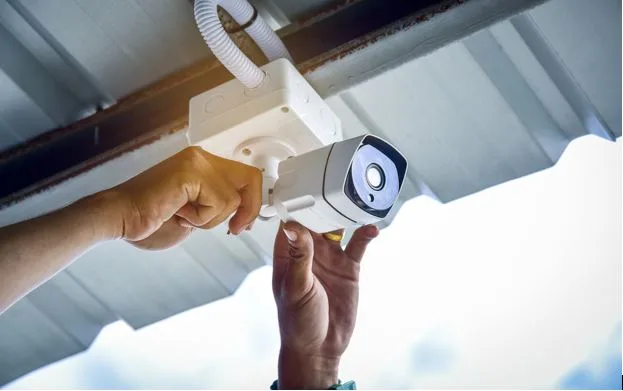How AI-Powered Personalization Is Reshaping Food Delivery Apps in 2025
Can’t decide between noodles and pizza? Don’t worry — your food delivery app probably has the answer. In 2025, AI-powered personalized food delivery apps will not only bring convenience but also represent an innovative and strategic move towards advancement. Artificial Intelligence in food delivery app development is now offering significant innovation, helping different platforms to serve up faster deliveries and gather real-time updates that matter.
However, if you want to launch a modern food delivery app, it’s time to get familiar with the contemporary AI-driven features that are transforming the food delivery industry. In this blog, we will explore how AI-powered personalization is changing the food delivery apps of 2025.
How AI Is Impacting the Modern Food Ordering Experience
According to the data, the AI market in the food and beverages sector is experiencing rapid growth, projected to reach $13.61 billion by 2025. This surge demonstrates how AI consistently influences the development of wise and intelligent technologies in the food delivery industry. Even now, with effective AI integration, a NodeJS development company can deliver excellent food apps powered by AI.
- Impact of AI in Food Delivery Apps
Artificial Intelligence is reshaping the way we interact with modern food delivery apps. Food delivery app development has already come a long way, from personalized meal recommendations to secure delivery routes. Similarly, Artificial Intelligence, or AI, works behind the scenes to make the meal delivery experiences much smoother, brighter, and satisfying.
- Personalized Recommendations Powered by AI
One of the most notable changes in food delivery apps is the use of AI for personalized recommendations. By leveraging the right amount of data, such as previous orders, dietary preferences, and even a customer’s behavior during in-app browsing, AI algorithms can always suggest lip-smacking dishes and restaurants specifically tailored to each user’s unique tastes.
- Live Tracking and Smarter Delivery Management
AI in the food and beverage industry enhances delivery experiences through real-time data tracking and innovative route management. However, by processing live data, AI provides accurate delivery time estimates and informs drivers about the optimal routes. Such AI-powered recommendation also helps achieve a 28% upsell success rate for orders.
- AI In Restaurant App Development
As restaurants increasingly adopt digital platforms, Artificial Intelligence is taking center stage by delivering more innovative, personalized, and efficient experiences. A Nodejs development company integrating AI into restaurant app development can easily build some scalable, high-performance food delivery apps. Here are some of the vital aspects where AI is already transforming restaurant apps.
- Automated Ordering and Payment Systems
AI can enhance the food delivery experience by improving the ordering and payment processes. With the AI technologies, such as natural language processing and computer vision, AI handles smart voice-activated ordering, easy mobile checkouts, and even smart in-app navigation. All these help reduce order errors and enhance convenience for both the customers and delivery partners.
- Smart Kitchen Technologies and Robotics
AI is rapidly improving the restaurant operations that support food delivery. AI-powered kitchen display systems prioritize and organize orders based on preparation time and current stock levels. Now, they even focus on the incoming order volume from apps. Robotics operated by AI also assists in automating repetitive kitchen tasks.
The Future of Delivery Apps: Why You Should Embrace Them
In the case of food delivery app development, certain key technologies are setting futuristic trends while redefining convenience and customer experiences. So, let’s take a look at a glimpse of what is waiting:
-
Drone Deliveries and Autonomous Vehicles:
Imagine receiving your placed order via a drone or self-driving car, which is expected to be a new advancement. This technology will hit the market very soon, faster than you think, with pilot programs already decided. That is why, according to reports, the Global Delivery Drone Market is expected to reach USD 10.478 million by 2030.
-
Voice-Activated Ordering:
With the rise of smart home devices, ordering food has become remarkably simple. All you need to do is simply say, “Hey Alexa, order my usual dinner.”
-
Hyper-Personalized Experiences:
With its potential, AI can tailor imaginative menus, assist with promotions, and even set proper portion sizes that easily fit individual customer preferences.
-
Integrated Ecosystems:
Food delivery apps may evolve into some of the latest platforms, offering easy grocery shopping, meal planning, and even cooking tutorials, transforming the way we think about food. Swiggy is an ideal example of that.
Real-World Examples of AI in the Food and Beverage Industry
Do you want to learn the practical impact of AI? Then, let’s explore how some of the top and leading food delivery platforms that integrate AI in food delivery app development have optimized various restaurant business operations, besides personalizing customer experiences and driving business growth.
-
Swiggy
Swiggy, leveraging the latest advancements in AI, can optimize delivery routes in real-time, reduce wait times, and even enhance business efficiency. Swiggy also personalizes food recommendations based on modern user preferences and order history. This helps with fraud detection and the wise allocation of the delivery partners on time.
-
Zomato
Zomato uses the power of AI in its recommendation engine to suggest restaurants and dishes to customers based on their past orders, other user ratings, and even their dining behavior. They also use AI to predict customer preferences and segment users based on targeted campaigns.
-
Domino’s Pizza
Domino’s integration of AI advancements can enhance quality control. The image recognition system is used here to inspect the pizzas before they are dispatched. The brand also uses predictive analytics to forecast demand and optimize business inventory.
-
McDonald’s
McDonald’s utilizes the advancement of AI to dynamically personalize drive-through menus. It even considers various factors, such as weather, time, and trending items, and recommends the most suitable ones for meals. They also use AI for kitchen workflow optimization, ensuring orders are processed more quickly.
Conclusion
In modern food delivery, AI-driven automation is no longer an option; instead, it has become a significant technology adopted by many food delivery companies. The way AI is revolutionizing different aspects of modern food delivery operations is commendable. So, collaborating with an experienced Nodejs development company ensures your food delivery platform can handle AI-powered personalization and future innovations without any additional performance bottlenecks.




